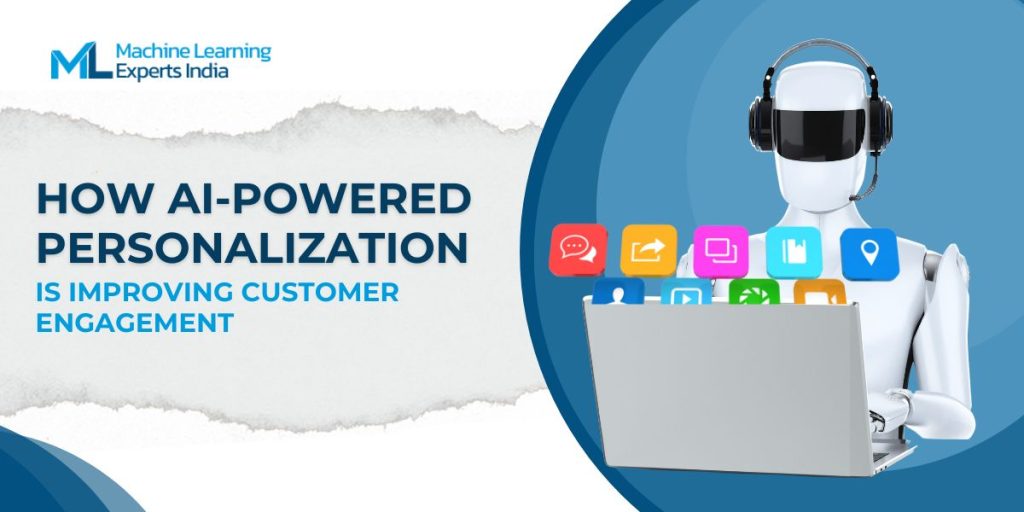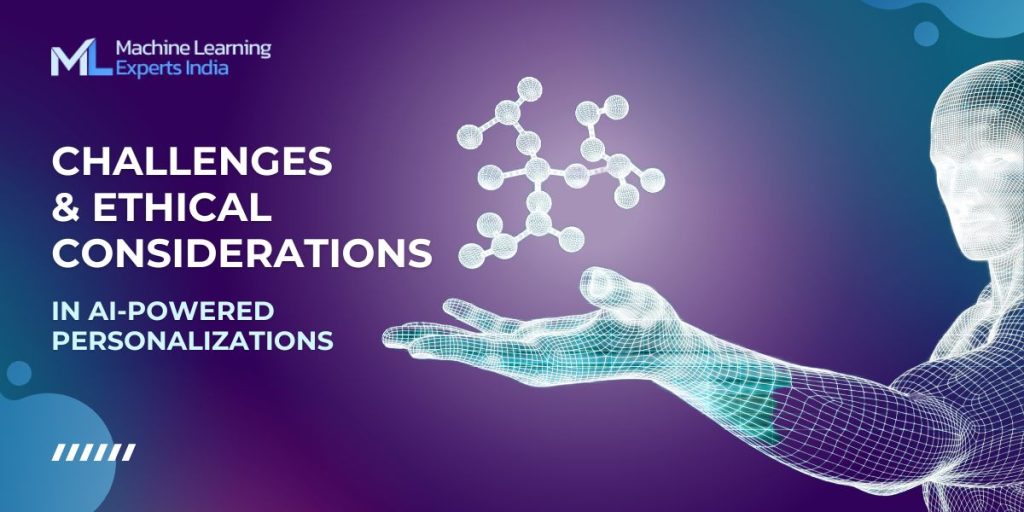Hook, Convert, and Connect with AI-Powered Personalization
The future of customer engagement isn’t between humans and AI – t’s both. Customer engagement has evolved over the years. 69% of customers expect brands to reply within 24 hours or less (according to sproutsocial) and 71% of customers will purchase from brands that offer a personalized experience (according to Mckinsey).
This means if your business isn’t already leveraging AI tools to give what the customers demand and expect, you’ll lose out on opportunities. And this is exactly what we are going to cover in this article – how to improve customer engagement with AI.
Why Customer Engagement is Changing
Prior to the development of mobile phones, businesses used traditional approaches, such as TV commercials and billboards, to market what they were selling. Plus, this level of communication was usually a one-way street.
Take Starbucks as an example. Apart from having physical stores around the world, they also have a mobile app. They prioritize providing a unified experience to their customers and use ai for customer engagement. Due to this, they saw a high customer engagement!
It was getting harder for them to track their sales, till AI walked in. It has played a pivotal role in boosting customer engagement –
i) Tracking customer behavior across multiple touchpoints.
ii) Creating hyper personalization experiences.
iii) Tweaking marketing campaigns based on customer feedback.
This shift in AI and personalization has helped businesses to boost their customer engagement and generate more revenue.
Related Blog: How AI and ML Development Services Can Enhance Your Business?
How AI-Powered Personalization is Improving Customer Engagement
Starting from ChatGPT and Google Gemini, AI has undergone change. It’s become more adaptable and smarter. Here’s how it’s improving customer engagement –

1) Chatbots and Virtual Assistant
It isn’t surprising to know that chatbots have gained popularity among businesses. These AI robots can be trained to respond in different languages and sound human-like.
In fact, 71% of businesses will be investing in these chatbots for their customer service (As per HubSpot). AI for customer engagement can help your customer interaction feel smooth and efficient.
2) Voice Assistants
Alexa and Siri are 2 of the most popular voice assistants that are helping customers have a hands-free experience. These assistants get an upgrade to understand the customer’s emotions and provide a response accordingly.
And the real kicker? Businesses that have used voice assistants saw a 20% increase in their customer engagement and reduced overhead costs significantly.
3) Predictive Analytics for Hyerpersonalization
76% of customers are likely to make a purchase from a brand that personalizes customer experiences. That’s the power AI holds, it can help you analyze customer behavior, their purchase history, and shopping behaviors.
This level of personalization AI can help you tweak your marketing campaigns and send out tailored deals and even website experiences.
Omnichannel Engagement: AI’s Role in Creating a Smoother Experience
Customers won’t engage with your business on just 1 platform – They’ll engage on every platform. An average smartphone has approximately 35 apps installed on the device! So, how do you utilize AI for customer engagement?
1) Unifying Customer Data Across Platforms
One of the biggest challenges that businesses face is cluttered customer data. AI can step in, collect these data from emails or phone calls, and then organize it. This can ensure that –
i) Customers receive personalized recommendations in their inbox.
ii) Provide personalized discounts on their birthdays or anniversaries, based on their purchase history.
iii) Eliminate the issues that a customer faced in the past.
2) Predicting Customer Needs
When you use AI for customer engagement, you can predict their shopping behaviors and provide discounts on products they love. Additionally, AI can take a step further and –
i) Remind customers to finish making a purchase, in case they leave items on their cart.
ii) Suggest complimentary items to purchase.
iii) Adjust website content to make online shopping more relevant to them.
3) Providing AI-Powered Personalization Through Social Media
Social media isn’t restricted for entertainment purposes. It can be used to boost customer engagement and provide customer support.
i) By keeping an eye on brand mentions, sentiment analysis methods can identify potential customer issues before they become worse.
ii) Personalization AI can help in creating content that reaches the right audience, at the right time.
iii) Sending tailored messages to clients through SMS or WhatsApp and providing 24/7 assistance to their queries.
Challenges and Ethical Considerations in AI-Powered Personalizations
Combining AI and personalization together can be exciting but has certain limitations of its own. Here are the top 3 –
 i) Reduced Human Interaction: Although AI can make your work easier, it lacks the human touch that your customers might be looking for. Don’t heavily rely on AI for customer engagement, as it can make your customers feel disconnected from your brand.
i) Reduced Human Interaction: Although AI can make your work easier, it lacks the human touch that your customers might be looking for. Don’t heavily rely on AI for customer engagement, as it can make your customers feel disconnected from your brand.
ii) Complex System Integrations: Adding AI to your current system can be a complex process and would require a high level of expertise. This level of integration needs to be done mindfully so that your customers don’t have a negative experience.
iii) Lack of Trust: According to a report by Salesforce, 74% of customers are concerned about the unethical use of AI. Therefore, gaining their trust and ensuring that their information isn’t misused can be a major challenge for you.
Future of Customer Experiences: Real-Life Applications
Some of the biggest brands have taken advantage of AI–powered personalization to boost their customer engagement. Below are 3 examples –
1) Wimbeldon’s AI–Powered Solution
On the biggest tennis tournaments in the world, harnessed the power of personalization AI. They used AI to generate important insights like prematch summaries and post-match analysis. All the relevant data was summarized in human-like language.
2) Starbuck’s Predictive Analysis
This coffee brand started an initiative called “Deep Brew” to amplify human-like connections. Their AI tool used machine learning algorithms and predictive analysis to personalize their marketing campaigns. This led to higher customer engagement and sales.
3) Amazon’s Recommendation System
Now you know how Amazon manages to recommend products that you might like. Their secret lies in using AI for customer engagement, which has helped to understand the type of products their customers might be buying.
Wrapping Up: Should You Use AI-Powered Personalization?
The short answer – Yes! Despite these limitations that AI has, the light ahead for the future of customer engagement shines bright. It is important, however, to be conscious of these challenges before applying AI in customer engagement.
Remember – Think out your marketing strategies using AI and don’t overestimate the power of humans. If you get confused at what to do next, feel free to reach out to us. Our team can help you improve customer engagement without losing their trust.
Frequently Asked Questions (FAQs) –
Q1. How is AI transforming customer engagement in 2025 and beyond?
Ans 1 – It’s through hyper personalization, predicting customer insights, automating customer inquiries through AI chatbots, voice assistants, and analyzing customer emotions for empathetic responses.
Q2. What are some of the customer engagement trends that businesses should be prepared for in 2025?
Ans 2 – Some of the latest trends include gamification and loyalty programs, omnichannel customer experience, AI powered personalization, and feedback driven improvements.
Q3. How can businesses effectively leverage customer data to improve personalization and customer experience?
Ans 3 – By using AI to evaluate huge amounts of data on consumer habits, interests, and prior contacts, businesses may make use of customer data.


